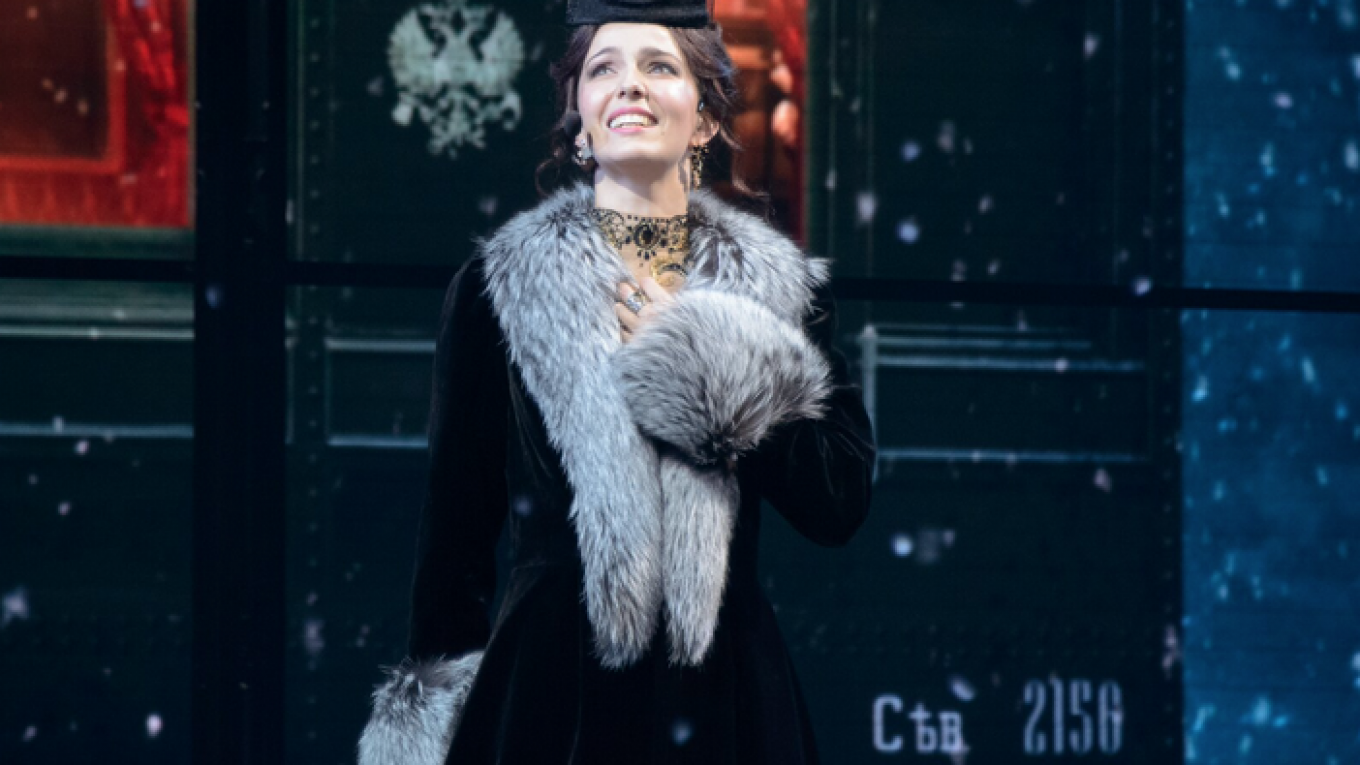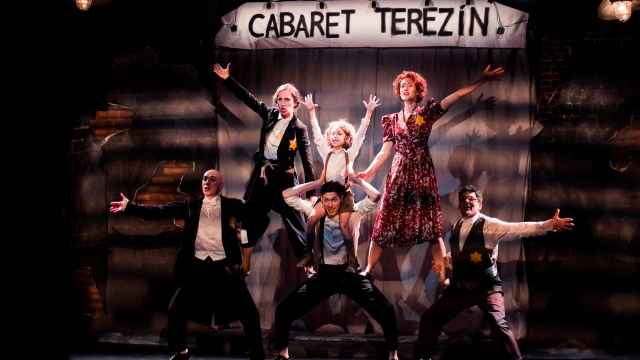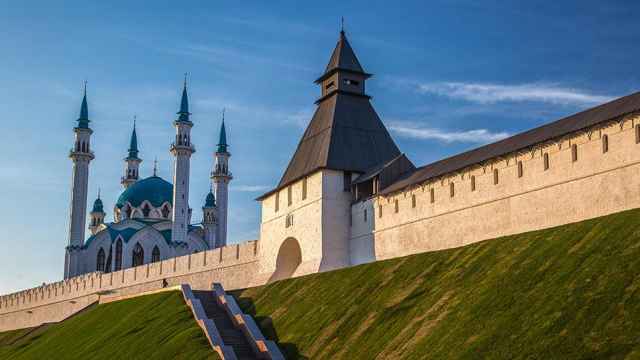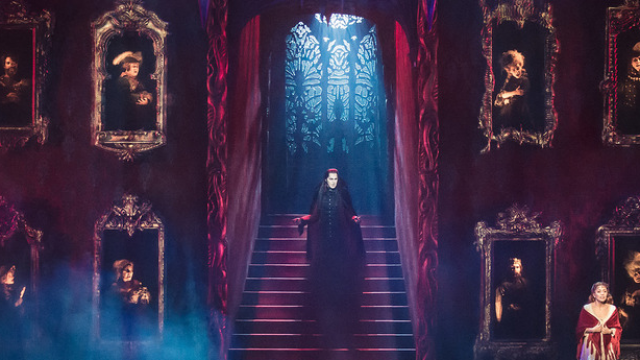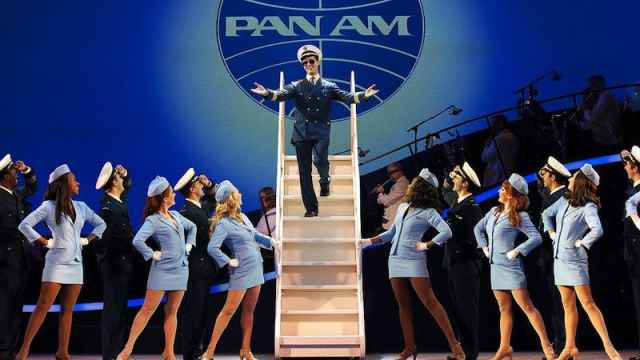The crowd jostling elbow to elbow at the Moscow Operetta Theater bar for their interval drinks are an eclectic bunch: young couples, family groups celebrating special occasions, a handful of tourists and even a pair of babushkas fanning themselves with their programs in the stifling heat of the foyer.
It’s not unusual to see a packed theater in Moscow, but this evening’s performance isn’t ballet, a classic play or a music concert.
It’s “Anna Karenina,” an all-singing, all-dancing interpretation of the Tolstoy classic.
The larger-than-life musical has been a smash-hit at the box office so far despite its unorthodox reimagining of the beloved novel. And it’s far from the only hit musical in town. After a late and somewhat hesitant arrival in the country — some decades after the genre became a tour de force in the U.S and Britain — the tide has turned for musicals in Russia.
“I think that the musical genre has firmly taken its place in the cultural life of Moscow,” said theater critic Marina Shimadina in an interview with The Moscow Times. “It has its own, constantly growing audience which is much broader than for ordinary theater because musicals offer spectacular, impressive shows with mass appeal.”
A Flexible Format
The Stage Entertainment theater company, which puts on productions at Moscow’s Rossiya and MDM theaters, currently works on the Broadway schedule of eight shows every week. Its roster of previous productions includes “Cats” and “Mamma Mia!”
Last year the company’s show, “The Phantom of the Opera,” made it second in the RBC newspaper’s summary of the highest grossing entertainment in Russia for the previous year — a list which spanned theater, television and exhibitions. Could this be a sign the Russian musical is now an art form in its own right?
“For the Russian professional theater community, the musical is recognized as an as independent and self-sufficient kind of theatrical art,” Dmitry Bogachev, managing director of Stage Entertainment Russia, told The Moscow Times.
“Many well-known opera and drama composers, theater directors and choreographers are happy to work in musicals because it gives them more creative freedom.”
This artistic freedom is certainly tangible in the Moscow Operetta Theater’s “Anna Karenina.” In one scene set at an ice rink the chorus glide around the stage on inline skates, while in another a group of fieldworkers combine traditional Russian dance with break dance as they toss bales of hay around the stage.
The adaption of a masterpiece of Russian literature into a popular theater production is not intended to dumb-down the novel for a mass audience, according to Alexei Bolonin, the show’s producer.
“A few years ago, when we put on the musical ‘Monte Cristo,’ sales of Dumas’ novel grew significantly,” he told The Moscow Times. “I do not doubt that the same will happen with Tolstoy’s ‘Anna Karenina.’ Some will want to re-read it, and perhaps some will want to discover it for the first time.”
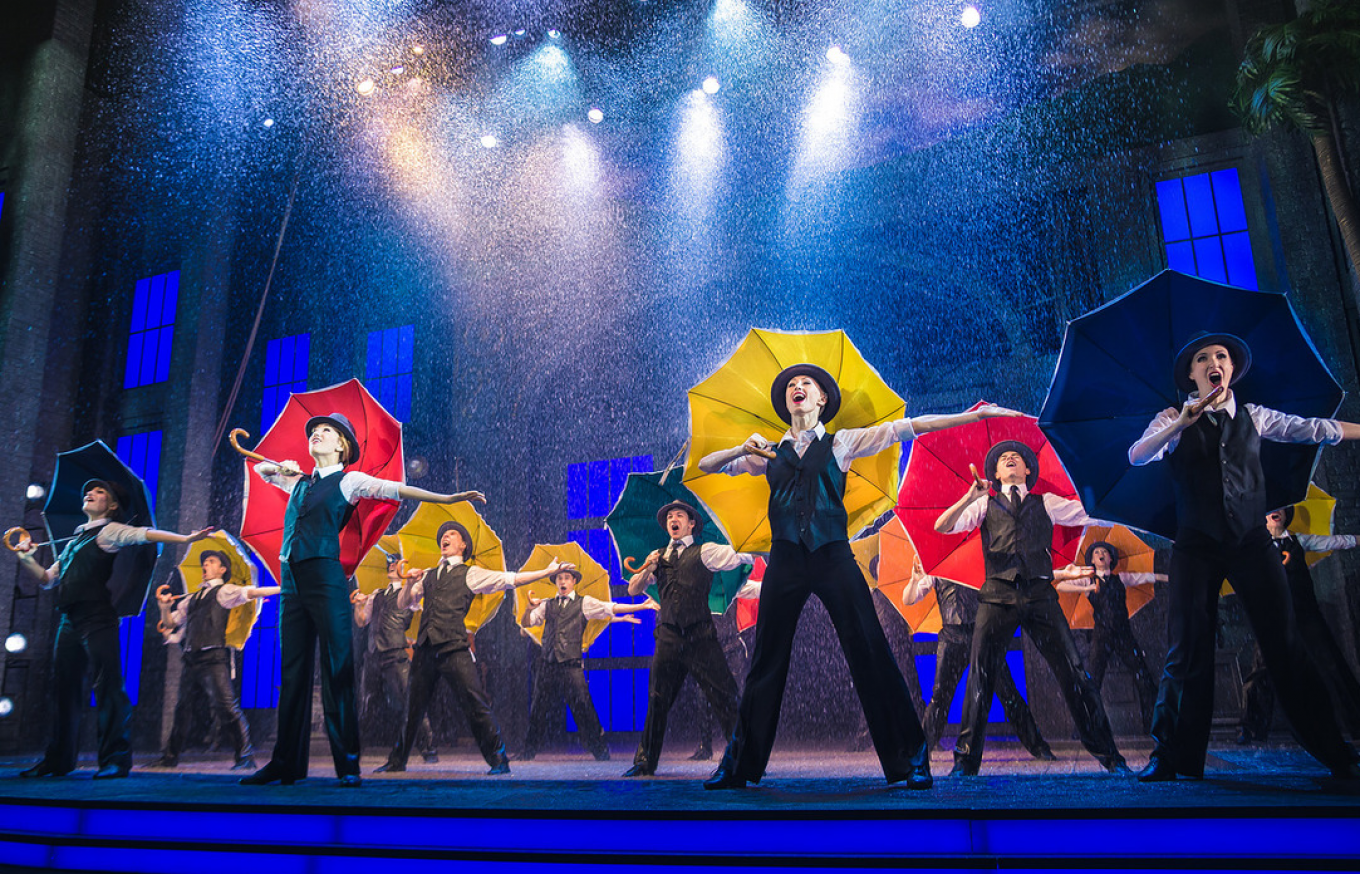
Right Time, Right Place
Such an appetite for the genre would have been difficult to foresee just 20 years ago. During the Soviet Union the bright lights of Broadway weren’t exactly everyday fare for theater-goers.
“Musicals were considered Western, bourgeois and purely an entertainment phenomena — as such they had no place in Soviet theaters,” said Shimadina. “We survived on musical comedies, which were officially approved by culture officials.”
The introduction of the musical to the post-Soviet space came much later than other cultural exports like television and music for obvious reasons: the prohibitive cost of staging a production in an unknown marketplace.
The Polish musical “Metro” (1998) and “Nord-Ost” (2001) are widely regarded as the pioneering productions in Russia.
But not all shows have been immediately embraced by audiences. “Forty Second Street” flopped in 2002 with a run of just 11 weeks. It has taken time for Russian audiences to get accustomed to some productions.
“When ‘Chicago’ was staged for the first time in 2002, the public was not ready for its aesthetics, its black comedy and its tale of prison life,” Shimadina told The Moscow Times.
Fast forward to 2016, and the tables have turned. “Dance of the Vampires,” which made its Moscow debut this season, is a raunchy, hedonistic extravaganza of the undead which audiences appear to be lapping up. The show is currently scheduled to run through May next year, if not longer.
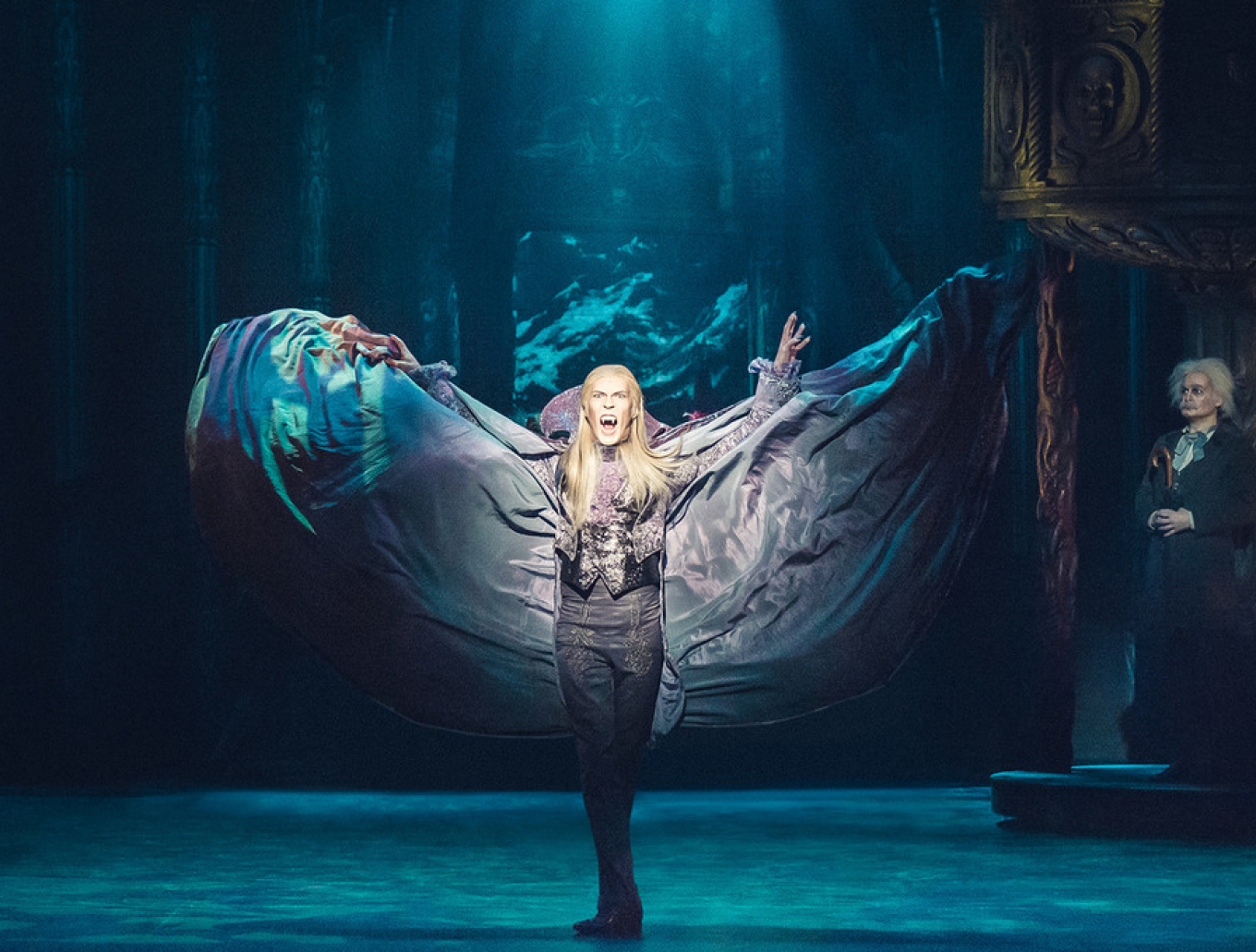
Don’t Run Before You Can Walk
The genre, however growing in popularity, does face some problems.
“In my opinion, there aren’t enough professional theater producers who understand theater, know how it works and know how to organize a process from the moment the idea is conceived with a group of writers to organizing marketing and ticket sales,” said Bogachev.
And there’s also a risk that the musical is becoming a victim of its own success. While Shimadina considers Stage Entertainment, the Moscow Operetta Theater and the Moscow Musical Theater to lead the field, smaller theaters have picked up on the commercial viability of a format with mass appeal, to the detriment of quality in the production.
“From a Broadway perspective, many Moscow musicals are far from ideal,” said Shimadina. “The biggest problem is that we do not have the musical school which has developed in the U.S and London. The Russian genre is all of 15 years old. We our teaching ourselves how to do the genre from examples of imported musicals.”
But it looks like there is a bright future ahead. Now that the musical is more firmly established, industry experts hope that investors, producers and actors will become more abundant. For this season’s “Anna Karenina” more than 1,000 auditioned for a part, the majority with prior musical experience.
“If previously the trend was to stage performances which were already licensed [abroad], we can now say with confidence that the trend has shifted toward creating original Russian performances, which are not only equal, but sometimes superior to their foreign counterparts,” said Bolonin.


